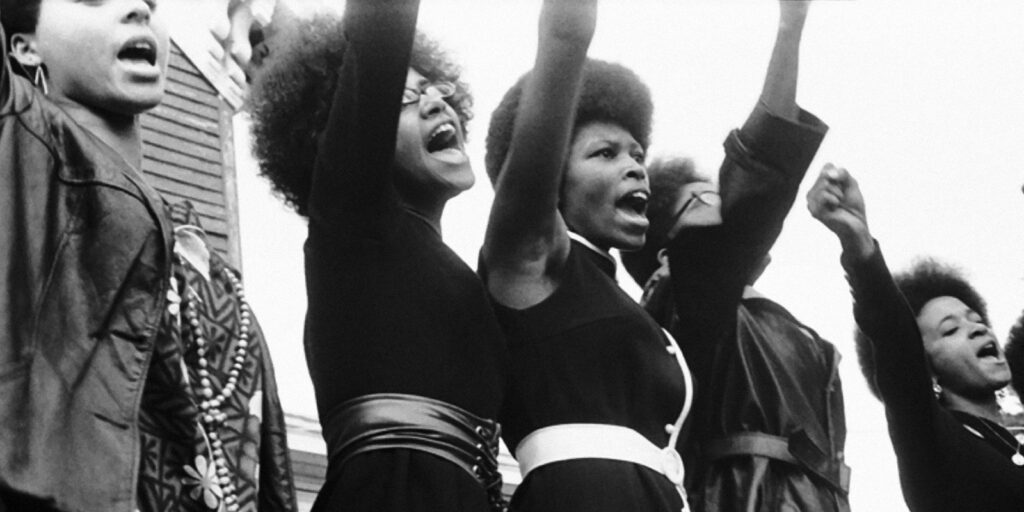
I don’t know if I liked The Black Panthers: Vanguard of the Revolution (2015) as much as I liked Jonestown: The Life & Death of The People’s Temple (2006). Stanley Nelson Jr. is a tremendously talented documentarian, there really is no disputing that, I just found that the earlier film had a suspense or otherworldly quality to it that the latter film did not possess. Granted, there is a whole lot more history to be crammed into The Black Panthers as well. Theirs’ was a national movement as opposed to a closed circuit community.
Stanley Nelson Jr. set out to dispel the disinformation and lies manufactured by the FBI that have largely shaped the white American perception of the Black Panthers and I think Nelson has succeeded. He cuts to and fro between archival footage and contemporary interviews, roughly adhering to the chronology of historical record. Nelson’s gifts truly shine in how well all of his materials come together, particularly when one considers the great volume of 16mm and 8mm film he must have had to sift through (including what looked like Agnes Varda’s Black Panthers documentary).
Conspicuously, Bobby Seale does not appear amongst the contemporary commentators. Where is Bobby Seale’s voice, his testimony? I would assume that Seale would make a better witness than most. The Black Panthers gets by fine without Seale’s reminiscences, but his absence, the void he leaves, is felt throughout the rest of the film.
The Black Panthers was released roughly five years before George Floyd’s murder. All of the protests, riots, demands, and public outcry in the wake of Floyd’s murder mirror the social and political climate in which the Black Panther Party functioned. Things progress so incrementally for the Black community under the yoke of systemic racism that it hardly seems progression occurs at all; and that is the tragedy that Stanley Nelson Jr. keeps at the heart of his film.
